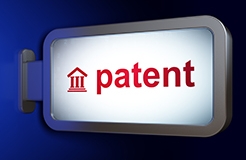我们已发送验证链接到您的邮箱,请查收并验证
没收到验证邮件?请确认邮箱是否正确或 重新发送邮件
没收到验证邮件?请确认邮箱是否正确或 重新发送邮件
确定
-
(摘译,文后附原文 )
IPRdaily已获编译作者李春成授权
邓肯.2008年9月3日 如果你对知识产权事务感兴趣,以下摘要你应当阅读。 知财资本有限公司(PCT Capital LLC)首席执行官雷蒙德.米理恩和拐点策略创始人兼董事总经理罗恩·劳里(InflexionPoint Strategy, LLC)以《已有的和新兴的IP业务模式综述》为蓝本,简要摘编了已经成型的和正在兴起的知识产权商业模式,令人印象深刻。
你所看到下面的摘要是非常简略的(我真的要推荐你阅读更有深度全文:A summary of established and emerging IP business models。
 一、正在兴起的四种商业模式
1.知识产权事务交流/交易平台。类似于纽交所和纳斯达克,无论是实体或或网络在线平台,促进知识产权交易交流,包括创建的基于知识产权的金融工具或类似股票的上市和交易。计划宣布创建交易交流(
2.防御性专利池。有选择地获取基于防守的专利组合。
3.技术/知识产权衍生融资。由传统风险投资(VC)或私募股权公司组织,专门从事较大科技公司面临困境的非核心知识产权衍生投资运作,或者创建大型技术公司之间的合资企业,以促进技术商业化和相关联知识产权货币化。
4.基于专利的公共股指。创建基于现有的软件工具和平台正式的股票指数。
一、正在兴起的四种商业模式
1.知识产权事务交流/交易平台。类似于纽交所和纳斯达克,无论是实体或或网络在线平台,促进知识产权交易交流,包括创建的基于知识产权的金融工具或类似股票的上市和交易。计划宣布创建交易交流(
2.防御性专利池。有选择地获取基于防守的专利组合。
3.技术/知识产权衍生融资。由传统风险投资(VC)或私募股权公司组织,专门从事较大科技公司面临困境的非核心知识产权衍生投资运作,或者创建大型技术公司之间的合资企业,以促进技术商业化和相关联知识产权货币化。
4.基于专利的公共股指。创建基于现有的软件工具和平台正式的股票指数。
二、已成型的十三种商业模式 1.专利许可和诉讼公司(PLECs)。拥有一个或多个专利组合,试图开展有目标的写信活动将其专利或组合许可出去;之后对那些拒绝接受拒绝进入非排他性专利许可者,提起专利侵权诉讼。
2.机构专利聚合器/知识产权收购基金。通常作为有限合伙公司的普通合伙人的典型运作实体,以及从大型科技公司或资本市场筹集资金的运作实体。
3.知识产权 /技术开发公司。从事研发活动和知识产权创造(包括专利和专有技术) 实体,看起来就像运营一个传统公司。然而,开发出的技术不是用于生产物质产品。
4.授权代理商。作用是帮助专利拥有者找到被许可者的专业中介机构。
5.诉讼金融/投资公司。知识产权收购基金和专利许可与诉讼公司(PLECs)之间的结合机制。
6.专利经纪人。与上面所讨论的专利许可代理功能基本相同,但他们寻求帮助专利拥有者找到买家而不是被许可方。
7.基于知识产权的并购顾问。以传统的投资银行模式开展经营,就是为科技公司的并购活动提供建议,并根据整个交易的价值(或根据交易涉及的知识产权的价值按比例)收取服务费用。
8.知识产权拍卖行。就像伦敦佳士得和苏富比拍卖行在古董和艺术品市场有名的专利拍卖市场。
9.网上的知识产权/技术交流/票据交换。功能像B2B网站一样,使之成了1990′年代后期dot com繁荣期间的流行模式。
10.知识产权支持的金融家。为知识产权拥有者提供直接或中介融资,通常以贷款形式(债务融资),债务融资安全以全部或部分知识产权资产价值为担保(也就是知识产权抵押)。
11.知识产权证券化企业。作为法律顾问,协助和/或为专利所有者实施知识产权资产证券化融资交易提供资金(类似于更常见的抵押贷款支持证券)。
12.专利评级软件和服务。提供先进的专利搜索和分析软件工具,从而允许专利所有者、律师、投资者和知识产权市场其他玩家,获得单个专利或专利组合各种情报和数据点。
13.大学技术转移中介。具有知识产权开发公司、知识产权收购基金、授权代理商和/或专利经纪人的作用,但聚焦于恰当的大学技术转让(例如许可)市场。
附原文 IntellectualProperty BusinessModels by Duncan onSeptember3, 2008 Here’ssomething that you really should read if you’re interestedin the business ofintellectual property. RaymondMillien (CEO of PCT Capital, LLC) and Ron Laurie(Co-founder and ManagingDirector of Inflexion Point Strategy, LLC) have puttogether an impressivesummary of current and emerging intellectual propertybusiness models over atVCExperts – Asummary of established andemerging IP business models As youcan see from the quick summary below (and I really dorecommend you read theentire article which has much more depth), it is verypatent-focussed. Whatbusiness models would you add to more fully take intoaccount business modelsfocussed on other types of IP? Emerging 1. IP TransactionExchanges/Trading Platforms – plans have beenannounced to create traded exchanges (whetherphysical or onlinelocations) similar to the NYSE and NASDAQ where yet-to-becreated IP-basedfinancial instruments would be listed and traded much likestocks aretoday. 2. Defensive Patent Pools – seek to selectively acquire portfolios of patents fordefensivereasons. 3. Technology/IP SpinoutFinancing - organized as a traditional venture capital (VC)or privateequity firm, but specializing in spinning out promisingnon-core IP which hasbecome "stranded" within larger technologycompanies, or creatingjoint ventures between large technology companiesto commercialize thetechnology and monetize the associated IP. 4. Patent-Based Public Stock Indexes – the creation of formalized stock indexes based on their existingsoftwaretools and platforms. Established 1. Patent Licensing andEnforcement Companies (PLECs) – entities that ownone or more patent portfolios, attempt tolicense them though targetedletter-writing campaigns, and then file patentinfringement suits againstthose letter recipients who refuse to enter intonon-exclusive licenses. 2. Institutional PatentAggregators/IP Acquisition Funds –entities that typically operate as general partners of alimitedpartnership and raise money either from large technology companies orfromthe capital markers. 3. IP/Technology DevelopmentCompanies – entities that engage inR&D activities and produce IP(including both patents and know-how) muchlike traditional operatingcompanies; however, the developed technology is notused to manufactureproducts in the form of physical goods. 4. Licensing Agents - entities that function as intermediaries by attempting toassistpatent owners in finding licensees. 5. LitigationFinance/Investment Firms – entities that are a crossbetween IP Acquisition Funds andPLECs. 6. Patent Brokers – entitiesthat function essentially the same as Licensing Agentmodel discussed above, butthat they seek to assist patent owners in findingbuyers rather than licensees. 7. IP-Based M&A Advisory – entities that operate in a traditional investment bankingmodel –advising technology companies in their merger and acquisition(M&A)activities and earning fees based on the value of the entire deal(orapportioned according to the value of the IP within the deal). 8. IP Auction Houses – entitiesthat are attempting to do for the patent marketplace whatfamed London auctionhouses Christie’s and Sotheby’s did for the antiqueand art marketplace. 9. On-Line IP/TechnologyExchanges/Clearinghouse – entities that functionlike the business-to-business (B2B) websites that became the rage duringthe late 1990′sdot com boom. 10.IP-Backed Financiers – entities that provide financing for IP owners, either directlyoras intermediaries, usually in the form of loans (debt financing), wherethesecurity for the loan is either wholly or partially IP assets (i.e.,IPcollateralization). 11.Royalty StreamSecuritization Firms - entities that counsel,assist and/or provide capital to patentowners performing IPsecuritization financing transactions (which resemble themore commonmortgage-backed securities). 12.Patent Rating Software andServices - entities that provide advanced patent searchand analyticssoftware tools that allow patent owners, attorneys,investors and other playersin the IP marketplace to obtain variousintelligence and data points about asingle patent or patent portfolio. 13.University TechnologyTransfer Intermediaries - entities that function asIP Development Companies, IPAcquisition Funds, Licensing Agents and/orPatent Brokers, but focusing on theniche university technology transfer(i.e., licensing) market.
编译:李春成,管理学博士、正高级工程师,现就职于天津市科学学研究所,长期从事科技政策与管理、区域科技与知识产权战略与规划等方面的研究工作。
译文略作修改,供参考。
《知识产权日报》英文“IPRdaily”是中国最具影响力的新锐知识产权产业媒体,由一群长期从事知识产权服务的信徒建立,我们中有资深媒体人,有投资者,有观察者,有代理人,有律师、有IPR风险控制专家,还有创业者。我们将客观敏锐地记录、述评、传播、分享知识产权行业的每一天。
版权声明:作品版权归作者所有,如果无意之中侵犯了您的版权,请来信告知,本站将在3个工作日内删除

 共发表文章3221篇
共发表文章3221篇最近文章
焦点追踪
关键词
首席知识产权官
世界知识产权日
美國專利訴訟管理策略
大数据
软件著作权登记
专利商标
商标注册人
人工智能
版权登记代理
如何快速获得美国专利授权?
材料科学
申请注册商标
软件著作权
虚拟现实与增强现实
专利侵权纠纷行政处理
专利预警
知识产权
全球视野
中国商标
版权保护中心
智能硬件
新材料
新一代信息技术产业
躲过商标转让的陷阱
航空航天装备
乐天
产业
海洋工程装备及高技术船舶
著作权
电子版权
医药及高性能医疗器械
中国专利年报
游戏动漫
条例
国际专利
商标
实用新型专利
专利费用
专利管理
出版管理条例
版权商标
知识产权侵权
商标审查协作中心
法律和政策
企业商标布局
新商标审查「不规范汉字」审理标准
专利机构排名
商标分类
专利检索
申请商标注册
法规
行业
法律常识
设计专利
2016知识产权行业分析
发明专利申请
国家商标总局
电影版权
专利申请
香港知识产权
国防知识产权
国际版权交易
十件
版权
顾问
版权登记
发明专利
亚洲知识产权
版权归属
商标办理
商标申请
美国专利局
ip
共享单车
一带一路商标
融资
驰名商标保护
知识产权工程师
授权
音乐的版权
专利
商标数据
知识产权局
知识产权法
专利小白
商标是什么
商标注册
知识产权网
中超
商标审查
维权
律所
专利代理人
知识产权案例
专利运营
现代产业
文章不错,犒劳下辛苦的作者吧
- 我也说两句
- 还可以输入140个字
回复
还可以输入 70 个字












